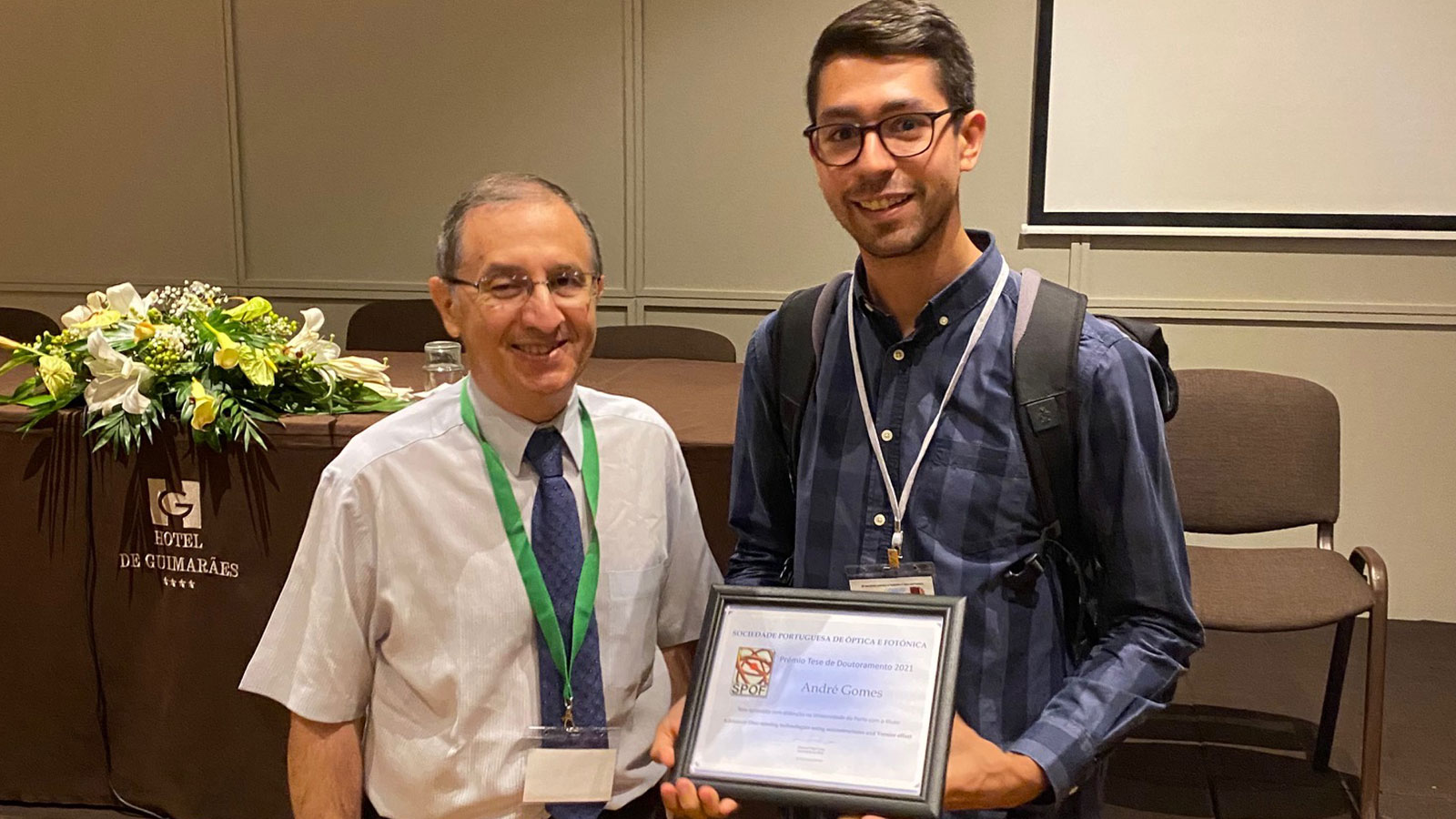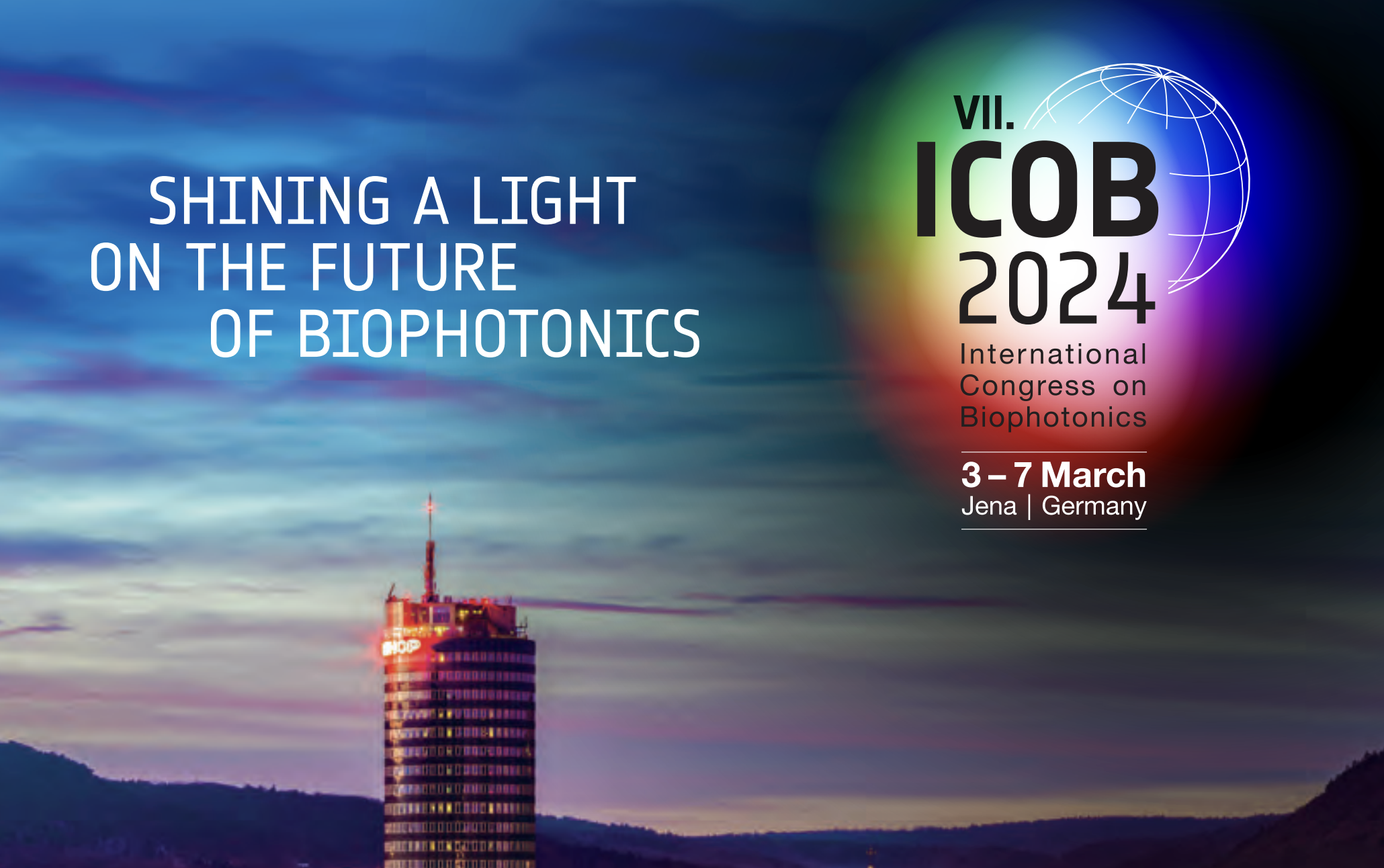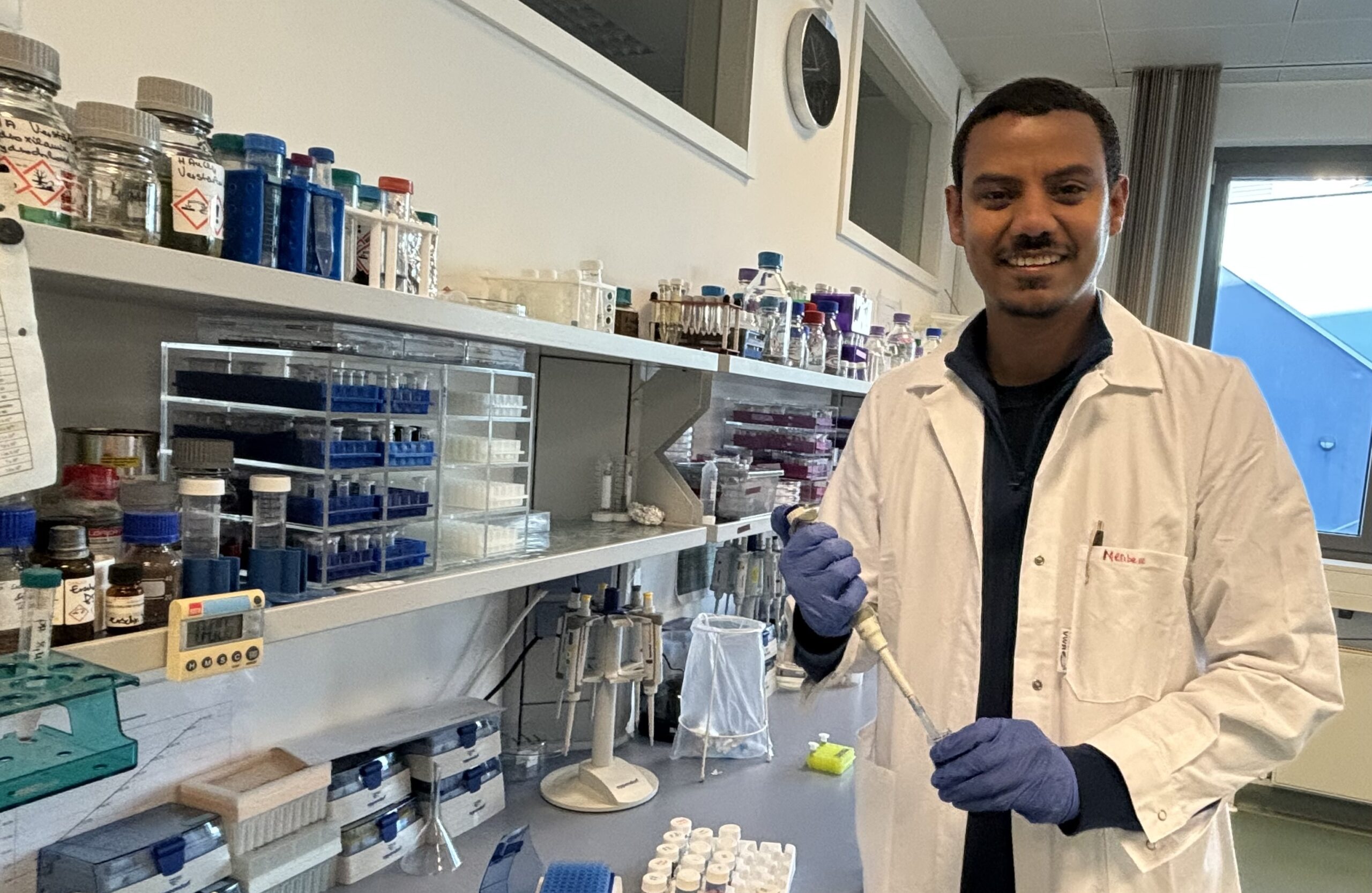Setting the course for future high-performance fiber sensors: Dissertation award for best doctoral thesis 2021 goes to scientist at Leibniz IPHT

For his research and development of advanced sensing technologies in optical glass fibers, Dr. André Gomes, scientist at Leibniz IPHT, has been honored with the 2021 Award for the Best Doctoral Thesis in Optics and Photonics at the international conference AOP in Guimarães, Portugal. With the award, the Portuguese Society for Research and Development in Optics and Photonics recognizes the best dissertation at universities in Portugal. The work lays the foundations for a new generation of highly sensitive fiber optic sensors with improved properties.
In his doctoral thesis entitled “Advanced fiber sensor technologies using microstructures and Vernier effect” at the University of Porto, Portugal, and Leibniz IPHT, the physicist Dr. André Gomes laid important foundations for the sensor technology of the future: Sophisticated interferometric microstructures in optical microfiber optics and fiber optic probes, as well as the use of the optical Vernier effect, form the basis for these novel and highly sensitive fiber optic sensors, which are characterized by improved sensor properties, such as increased sensitivity and measurement resolution. They thus offer the potential to measure a large number of different parameters, such as humidity or pressure, with high precision in biophotonics, life sciences and sensor technology.
To this end, the scientist from Portugal combined optical microfibers with microstructured interferometers. By applying the Vernier effect, known from calipers for length measurements and from optics, to these microstructured interferometers in optical fibers, the performance of previously known interferometers or fiber-optic sensors could be significantly increased in terms of sensitivity.
Interferometers use the power of light to carry out precise optical measurements, for example of strain or temperature, by superimposing different path lengths of light (known as interference). The Vernier effect is based on the combination of two interferometers with slightly shifted interferometer frequencies, corresponding to a small difference in the optical path length of the light between the interferometer and the measured object. Typically, one interferometer is used as the measuring sensor, while a second interferometer serves as a reference.
In his doctoral thesis, the Leibniz IPHT researcher developed a new approach for a fiber-optic sensor structure in connection with the Vernier effect. This shows that both interferometers can also have very different interferometric signals and thus very different optical path lengths (so-called optical harmonic Vernier effect). In this way, the sensitivity limits of conventional fiber interferometers, but also non-fiber interferometers, could be overcome and significantly higher resolutions of parameters to be measured could be achieved than with previous interferometers. By increasing the optical path length of the reference interferometer in specific multiples, the Vernier effect and thus the improved sensitivity achieved can be further maximized.
This would allow new generations of high-performance interferometric fiber sensors with unprecedented sensitivities to be realized for use in cutting-edge applications in medicine, biology, and chemistry, with properties that can be tailored to the specific application.
The Best Doctoral Thesis Award in Optics and Photonics is presented annually by the Portuguese Society for Research and Development of Optics and Photonics (SPOF) for the best dissertation in Portugal, with both a prize of 500 euros and the opportunity to present scientific achievements at the International Conference on Application of Optics and Photonics (AOP).
Scientific Publications
Gomes, A. D. et. al, Sensors, Volume 19, Issue 24, 5431, 2019, https://doi.org/10.3390/s19245431
Gomes, A. D. et al, LASER & PHOTONICS Review, Volume 25, Issue 7, 2000588, 2021, https://doi.org/10.1002/lpor.202000588
In the picture:
From left to right: Prof. Dr. Manuel Filipe Costa, President of the Portuguese Society for Research and Development of Optics and Photonics (SPOF), and Dr. André Gomes, scientist at Leibniz IPHT


